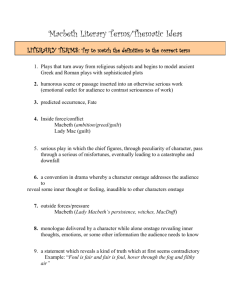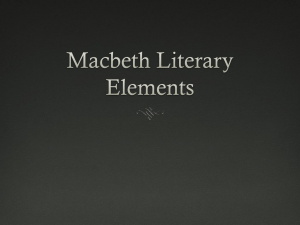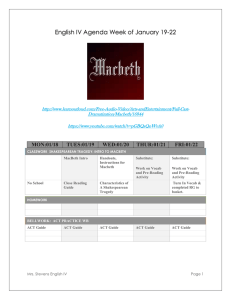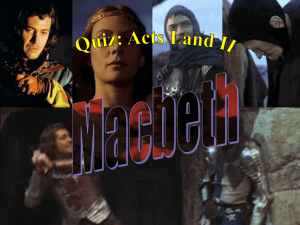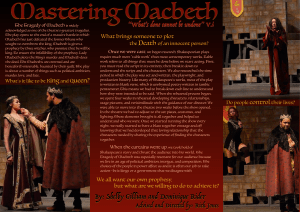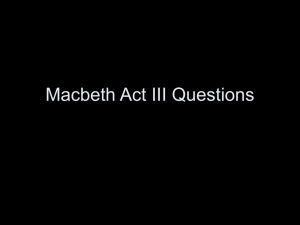Macbeth vocabulary
advertisement
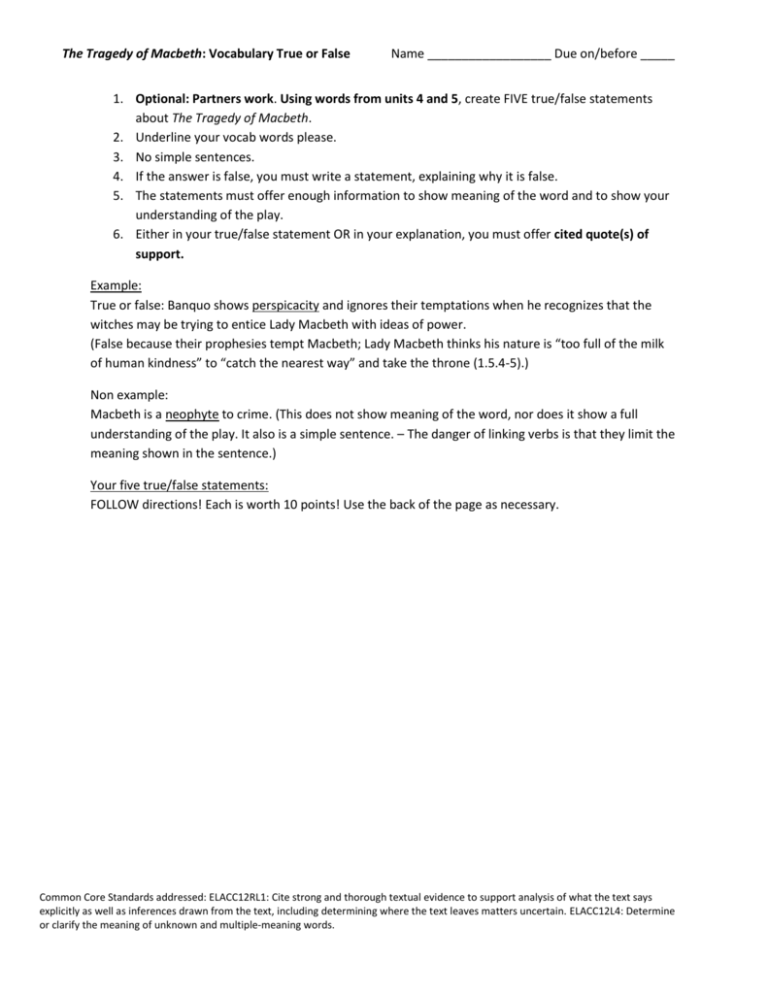
The Tragedy of Macbeth: Vocabulary True or False Name __________________ Due on/before _____ 1. Optional: Partners work. Using words from units 4 and 5, create FIVE true/false statements about The Tragedy of Macbeth. 2. Underline your vocab words please. 3. No simple sentences. 4. If the answer is false, you must write a statement, explaining why it is false. 5. The statements must offer enough information to show meaning of the word and to show your understanding of the play. 6. Either in your true/false statement OR in your explanation, you must offer cited quote(s) of support. Example: True or false: Banquo shows perspicacity and ignores their temptations when he recognizes that the witches may be trying to entice Lady Macbeth with ideas of power. (False because their prophesies tempt Macbeth; Lady Macbeth thinks his nature is “too full of the milk of human kindness” to “catch the nearest way” and take the throne (1.5.4-5).) Non example: Macbeth is a neophyte to crime. (This does not show meaning of the word, nor does it show a full understanding of the play. It also is a simple sentence. – The danger of linking verbs is that they limit the meaning shown in the sentence.) Your five true/false statements: FOLLOW directions! Each is worth 10 points! Use the back of the page as necessary. Common Core Standards addressed: ELACC12RL1: Cite strong and thorough textual evidence to support analysis of what the text says explicitly as well as inferences drawn from the text, including determining where the text leaves matters uncertain. ELACC12L4: Determine or clarify the meaning of unknown and multiple-meaning words.






